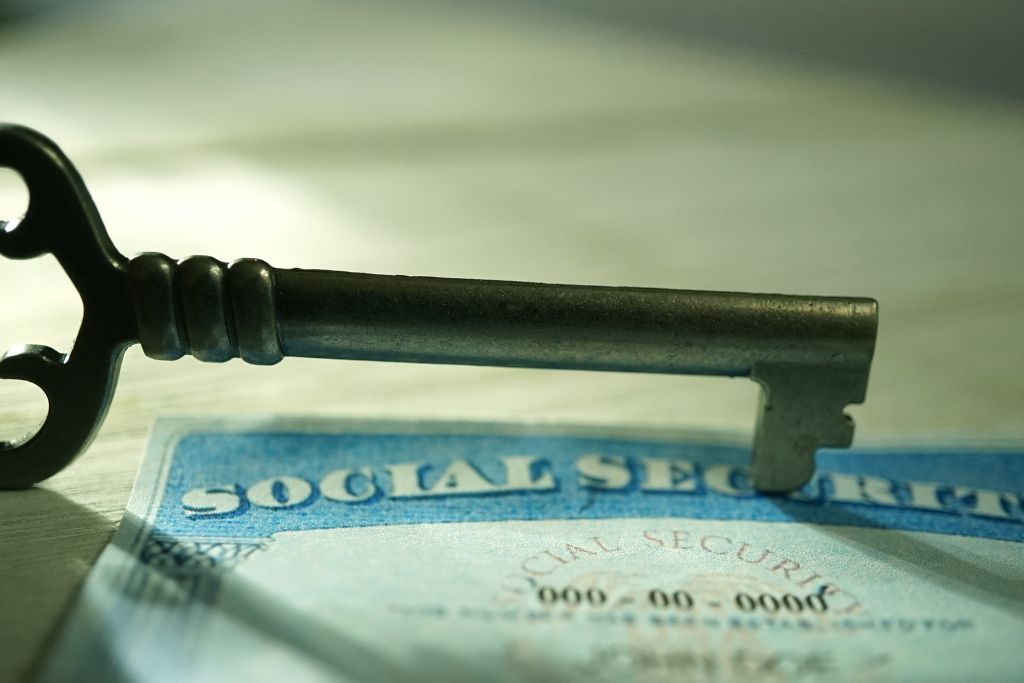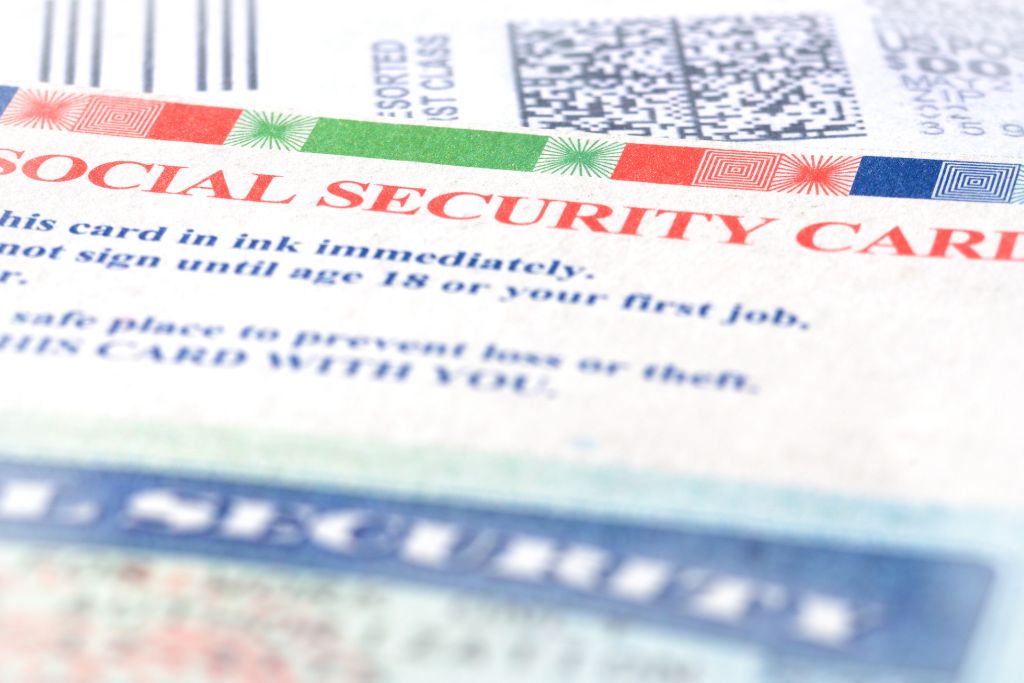In an era where identity theft runs rampant, protecting your Social Security number (SSN) is more important than ever. In the wrong hands, your SSN can be a gateway to fraud and financial ruin.
Understanding the importance of protecting this sensitive information is the first step in preventing identity theft and securing your financial future. We’ll explore the risks associated with SSN exposure and provide practical tips for keeping your number safe.
Key Takeaways:
Your SSN is a valuable target for identity thieves and can be used to open fraudulent accounts, file false tax returns, and more.
Protect your SSN by being selective about sharing it, using secure storage methods, and monitoring your credit regularly.
If your SSN is compromised, act quickly to limit the damage and begin the recovery process.
The Risks of SSN Exposure

Your SSN is a goldmine for identity thieves. With just those nine digits, a criminal can open new credit accounts, take out loans, file fraudulent tax returns, and even obtain medical services in your name. The consequences can be devastating, from ruined credit to legal troubles and beyond.
As Theresa Payton, Founder of Fortalice Solutions and the first female CIO of the White House (2006), explains:
"Protecting a Social Security number (SSN) can prevent or reduce the risk of identity theft, fraud, and scams.
Every time an individual divulges his/her SSN, there's potential for a malicious actor to illegitimately gain access to bank accounts, credit cards, driving records, tax and employment histories, and other private information. SSN continues to be a prevailing valuable piece of information, with SSNs being exposed in 69% of breaches in 2023, according to TransUnion."
In some cases, thieves may use your SSN to secure employment, leaving you on the hook for additional taxes. Your SSN can also be sold on the dark web to other criminals, perpetuating the cycle of fraud. The longer an identity thief goes undetected, the more damage they can do to your financial well-being and reputation.
Protecting your SSN is not just about preventing financial losses—it's about preserving your peace of mind and safeguarding your future. By taking proactive steps to secure your personal information, you can significantly reduce the risk of falling victim to identity theft.
How to Protect Your SSN

One of the most effective ways to protect your SSN is to be cautious about sharing it. Understand that not everyone who requests your SSN actually needs it. In many cases, you can offer an alternative form of identification or simply decline to provide the number.
Legitimate reasons for sharing your SSN include:
Employers for tax and payroll purposes
Financial institutions for opening accounts or applying for loans
Government agencies for tax, welfare, or health benefits
Landlords or utility companies for credit checks (in some cases)
If you're unsure whether an SSN request is valid, ask questions. Find out why the number is needed, how it will be used, and what security measures are in place to protect it. If you're not satisfied with the answers, consider withholding your SSN or seeking an alternative.
When you do need to share your SSN, use a secure method. Avoid sending your number via unencrypted email or text message, as these can be intercepted by hackers. If you must send your SSN electronically, use a secure platform like Trustworthy, which offers end-to-end encryption and secure sharing features.
Trustworthy is a secure platform designed to help individuals and families protect their most important information. With end-to-end encryption, granular access controls, and a user-friendly interface, Trustworthy makes it easy to keep your SSN and other personal data safe from prying eyes.
For physical documents containing your SSN, like tax forms or benefits statements, use a locked filing cabinet or safe to store them. When it's time to dispose of these documents, shred them thoroughly before discarding them. Storing them electronically with Trustworthy is another safe option.
Monitor Your Credit Regularly
One of the best ways to catch identity theft early is to monitor your credit regularly. By law, you're entitled to one free credit report per year from each of the three major credit bureaus (Equifax, Experian, and TransUnion). Take advantage of this benefit and review your reports carefully for any suspicious activity, like accounts or inquiries you don't recognize.
For added protection, consider signing up for a credit monitoring service. These services alert you in real-time to any changes in your credit report, allowing you to respond quickly to potential fraud.
Use Strong, Unique Passwords
If you have online accounts associated with your SSN, like Social Security or tax filing services, it's wise to use strong, unique passwords. Avoid using easily guessable information like birthdays or names, and never reuse passwords across multiple accounts.
A strong password should include a mix of upper and lowercase letters, numbers, and special characters. Consider using a password manager like LastPass or 1Password to generate and store complex passwords securely.
Be Cautious of Phishing Scams
Phishing scams are a common tactic used by identity thieves to trick you into revealing your SSN and other personal information. These scams often come in the form of legitimate-looking emails or text messages claiming to be from a government agency, bank, or other trusted entity.
To protect yourself from phishing scams:
Be wary of unsolicited messages requesting personal information
Verify the sender's identity before responding or clicking any links
Look for red flags like poor grammar, generic greetings, or spoofed email addresses
When in doubt, contact the alleged sender directly using a verified phone number or email address
Be cautious about sharing your SSN on social media or public websites, even if it's just the last four digits. Identity thieves can use this partial information to guess the full number or piece it together with other readily available data.
Consider an Identity Protection Service
For an added layer of security, consider signing up for an identity protection service like LifeLock or Identity Guard. These services monitor your personal information across multiple channels, alerting you to any suspicious activity and providing support if your identity is compromised.
Some services also offer insurance to cover the costs associated with identity theft recovery, like legal fees and lost wages. While these services can be valuable, they should be used in conjunction with—not as a replacement for—good personal security practices.
What to Do If Your SSN Is Compromised

Despite your best efforts, there's always a chance your SSN could fall into the wrong hands. If you suspect your number is compromised, act quickly to minimize the damage and begin the recovery process.
Place a fraud alert: Contact one of the three major credit bureaus (Equifax, Experian, or TransUnion) to place a fraud alert on your credit report.
Consider a credit freeze: For added protection, you can place a credit freeze on your report. This prevents new accounts from being opened in your name, even if someone has your SSN.
Review your credit reports: Request a free copy of your credit report from each bureau and review it carefully for any suspicious activity. Look for accounts or inquiries you don't recognize, and report any fraudulent items to the credit bureau and the associated creditor.
Notify affected parties: Contact any companies or institutions where you know fraud occurred, like banks, credit card issuers, or the IRS. Explain the situation and follow their procedures for disputing fraudulent activity and protecting your accounts.
Consider changing your SSN: In some cases, you may be able to request a new SSN from the Social Security Administration (SSA). This is typically only an option if you can prove that your original number has been extensively compromised and that you're experiencing ongoing problems as a result.
Recovering from SSN theft can be a long and stressful process, but remember that you're not alone. Many organizations, like the FTC and the Identity Theft Resource Center, offer resources and support for victims of identity theft.
Stay Vigilant and Take Action

Protecting your SSN and personal information is an ongoing responsibility. By staying informed, using secure tools like Trustworthy, and being proactive about monitoring your credit, you can significantly reduce your risk of identity theft.
Remember, your SSN is a valuable asset that deserves the highest level of protection. Don't wait until it's too late to take control of your personal information security. Start using Trustworthy today to organize, secure, and manage your sensitive data with ease.
Can I refuse to provide my SSN to a potential employer?
Employers are required to collect SSNs for tax and payroll purposes. However, you can ask to provide your SSN after a conditional job offer has been made to protect your privacy during the application process.
What should I do if I lose my Social Security card?
If your Social Security card is lost or stolen, contact the Social Security Administration (SSA) immediately to request a replacement. You can apply for a new card online, by phone, or in person at a local SSA office.
How can I tell if a website requesting my SSN is legitimate?
Look for signs of a secure website, such as a URL beginning with "https" and a locked padlock icon in the address bar. Be cautious of unsolicited requests for your SSN, and when in doubt, contact the organization directly using a verified phone number or email address.
We’d love to hear from you! Feel free to email us with any questions, comments, or suggestions for future article topics.
Trustworthy is an online service providing legal forms and information. We are not a law firm and do not provide legal advice.













